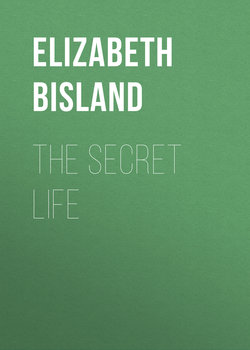Читать книгу The Secret Life - Elizabeth Bisland - Страница 2
July 7.
An Optimistic Cynic
ОглавлениеAmiel's Journal: – I have been reading it with the half impatient interest which such books always arouse – in me at least. It is a more agreeable book, however, than Marie Bashkirtseff's disingenuous posings, or Rousseau's vulgar, insulting confidences. One is impatient with the bore who talks about himself when one is impatient to bore him about one's own self, and yet, somehow, one is fascinated by the hope of getting behind the mask of personality.
I learned to read French that I might possess the contents of the "Confessions." George Eliot called it the most interesting book she knew, which fired my ambition to read it. With the aid of a dictionary, the four great volumes were got through somehow, and when the task was accomplished, though I loathed Rousseau, I had enough French to serve roughly for both reading and speech.
What ambition and courage one had in those days! I studied French while I did the churning. Remembering the strength and persistency of that time I wonder that I have come to middle age and done nothing. Athletic trainers say that there is in every one only a fixed capacity for development. One may reach that limit readily, and once reached no toil or patience will ever carry the power of the muscles beyond it by the smallest part of a fraction. Mentally, the same probably holds good. My capacity was, no doubt, always small. So far as it went the cramping, unpropitious circumstances of youth had no power to chill it, but prosperity, leisure, opportunity, could not add one jot to its possibilities…
In all these journals what I find interesting is not so much what the writer says as what he reveals unintentionally.
The impression Amiel leaves upon the reader is that he was at least a gentleman – that he had a gentle soul; clean and modest, continent and grave. His melancholy seems neither so profound nor so touching as Mrs. Humphrey Ward and his other critics would have one believe. At least it is neither tragic nor torturing. He gives the impression of saying "I have no bread – but," he adds cheerfully, after a moment's reflection, "the Lord will provide."
He is not rebellious. In moments of the most real gravity, when he is face to face with death, he clings to the egotistic superstition that perhaps – most probably – there is somewhere some wise kind Power deeply interested in his doings, his emotions, his future. He is profoundly convinced that it is important how he feels, how he bears himself. He has no sense at all of the blind nullity of things. He asserts this nullity to be unthinkable.
All this is surprising when one remembers the insistence of his commentators upon the intense modernity of his mind. Is this modern? I cannot see wherein it differs from the spirit of the past. Such natures were not uncommon in other centuries – as was the nature of Erasmus for example…
The man had no passion. He did not marry because, he says, he demanded perfection; could not find or give it, and therefore resigned himself cheerfully to celibacy. Passion, of course, would have blinded his eyes to imperfections; having none, his eyes were always clear… It is perhaps in this passionlessness that he is most modern. Most of us no longer demand perfection. Knowing it to be unattainable, modern common sense cheerfully agrees to abandon desire for it. This is visible in our literature, in art, in love. No one reads or buys long poems any more, therefore the poets never contemplate a new Paradise Lost. No one paints heroic pictures, for they are not salable. The grandiose has no market and therefore grows obsolete. The law of supply and demand rules there as elsewhere. Passion and the perfection it longs and strives for is démodé.
